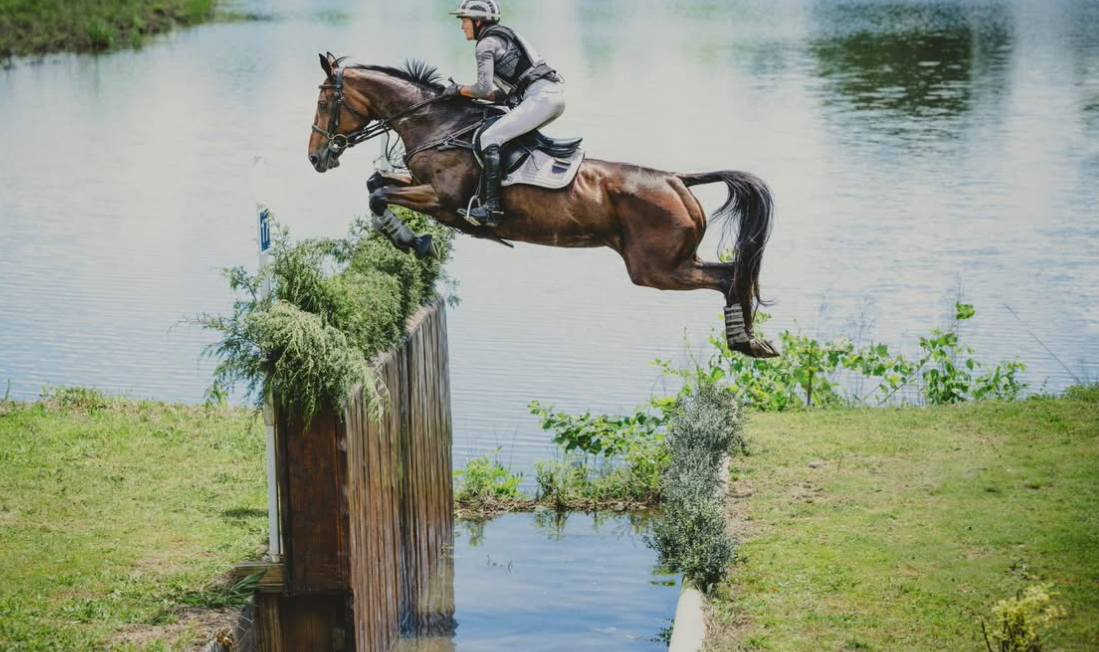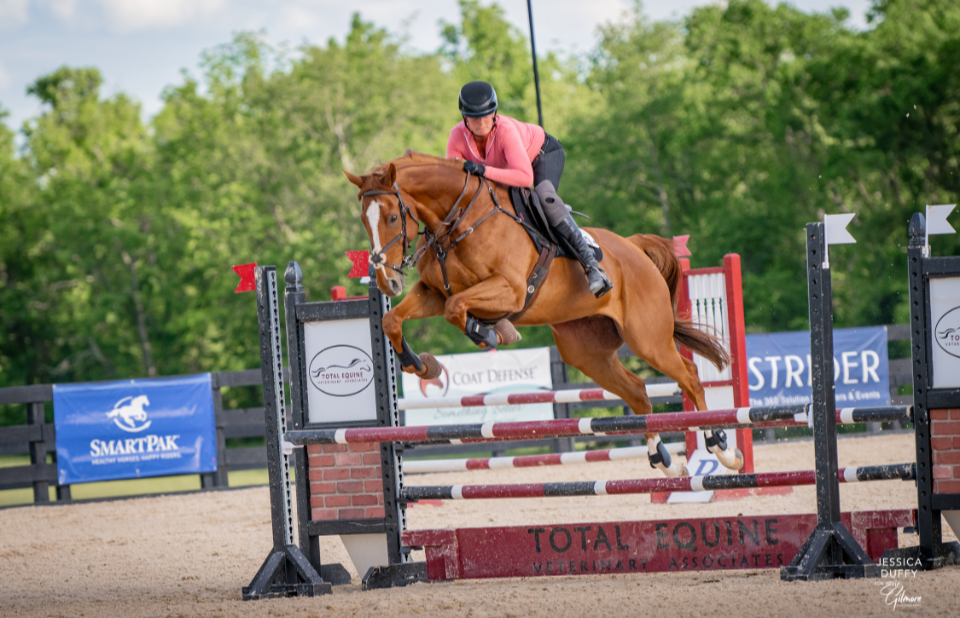
Coach Abed sits beside one of the schools horses. Photo: Malek Shaheen
There are few sports as internationally loved as equestrian sports. Sure, the type of saddle might vary depending on what continent you live on: something sturdy and traditional for reining or working equitation, or something modern and sleek, for show jumping, polo and cross country. Across the globe, a community might prefer a heavier and stockier horse for the colder climate or slender and smaller horse in warmer climates. But no matter where on the globe an equestrian might hail from, the love and appreciation for the horse is a constant.
It makes sense then, that equestrians would also have a deep appreciation for those whose entire life is dedicated to teaching us about horses: the coaches. The coaches that teach our children good horsemanship. The coaches that believe in them. The coaches that wake up at 5am everyday to demonstrate that loving horses sits at the intersection of grit, commitment and compassion. Lots of compassion.
This is the story of how a small riding academy in the heart of Gaza City, Palestine, became a unifying force for compassionate equestrians around the globe.
The Aljawad Riding Club is…was… a children’s riding center much like the Pony Club Centers in the United Kingdom and the USA. The school offered structured lessons in show jumping and certifications for horse care knowledge, as well as horse nutrition and anatomy. This was balanced with thoughtfully coordinated horsey birthday parties, graduation celebrations, cultural gatherings and even holiday dinners.
The small facility had a constant presence of children everywhere: hanging out in the in the barn stables, laughing on the colorful playground and running about the blue pickle ball court. Not just the “horse crazy” kids though, but their siblings too, all mixed together, some playing in their tall boots and others in their sneakers. All sharing the simple joy of just being near horses and outdoors.

A young student looks up towards Coach Abed smiling while they await to hear the results of their schooling show. Photo: Ahmed Alreefi
In addition to offering lessons to more than 300 students, the school hosted the first ever FEI-sanctioned event in Gaza and was coordinating equine-facilitated therapy sessions with local medical nonprofits. Despite restrictions on equine vaccines and the heavy limitations on potable water imposed by Israel, this club and its passionate staff of 20 employees and 36 horses had become a thriving outdoor oasis for families of all sizes.
In February of 2024, five months after the failed Israeli – Palestinian hostage exchange of October 10th, I got in contact with the general manager of this unique riding school, a young man named Ahmed who had evacuated toTurkey. I learned that he had done everything he could to continue to care for the school’s 36 horses as the aggression on Gaza City progressed.
That is, until an Israeli tank blocked the entrance to the farm and would not allow anyone to approach the animals.
I learned that Ahmed and I had many things in common: we had both held down two jobs to keep horses in our lives, we both were raising toddlers, and of course, we both admitted to spending obscene amounts of time reading about horses.
What we didn’t have in common is that one of us had treated horses for shrapnel wounds and then narrowly escaped the bombing of their own home. As the daughter of immigrants to the U.S. myself, I could sympathize with being in a completely new place, but I had never had to care for my horse as bombs fell around me, much less evacuated with only the clothes on my back.
By May 2024, our weekly conversations included Ahmed sharing memories of the horses at the riding school and day dreams of what type of equine facilitated horse therapy the school might offer the thousands of traumatized child amputees in Gaza one day. Soon, we were fundraising to help his small family get on their feet in Turkey so that he could one day return to Gaza to rebuild what had been destroyed. We wrote an article and got it published! I was full of hope.

Coach Abed organizing a large meal to share with children in Northern Gaza who were sometimes eating once a day, per Amnesty International.
Until one day he came to me with dire news: his head trainer, Coach Abed Diab, was still in Gaza and had been severely injured.
Coach Abed was a beloved staff member and dedicated horseman. His family home had been partially destroyed by a missile. Ahmed shared with me that Coach Abed was now struggling with mobility from shrapnel that was lodged in his foot.
Perhaps it is the compassion that comes with being a horse person that I mentioned before – or the way the barn family can resemble a herd – which means everyone matters and no one is left behind, but it was clear that Coach Abed was a part of Ahmed’s herd because he jumped into action faster than a Thoroughbred leaving the start box.
Ahmed began to use his connections back home in Gaza to coordinate a way to get Coach Abed medical attention and later found someone else to bring him food. I felt useless by comparison but began to gather photos and set up a GoFundMe so that my family and friends here could lend a hand.
After that, the unexpected happened. People who had read the article published on The Chronicle of the Horse began to reach out to help.
Equestrians from Canada eagerly designed printable flyers that encouraged people to sell their unwanted tack and donate the proceeds. Others began to create content for social media to help direct people to Coach Abed’s fundraiser. Western riders. English Riders. Serious trainers and first-time horse owners.
Soon, his GoFundMe link was being viewed in Haiti, South Africa, Germany, Egypt and Qatar.
An equestrian illustrator donated their artwork to bring smiles to the students and remaining Alwajad Club staff. Those drawings were then made into commemoration t-shirts and used to fundraise further. People began to buy them as gifts for one another and talk to each other about this special place and the people that worked there. Money began to come in and things were looking hopeful again.
Coach Abed was slowly healing. We had even raised enough funds to obtain an old bicycle for him that would allow him to fetch water with more ease. At one point, Coach Abed joyfully sent us back photos of the soup line he coordinated to feed the starving children in his neighborhood with a portion of the funds we had sent him. Despite his dire condition, he was sharing the little he had.

Coach Abed holds Queer, a 7year old bay thoroughbred. Photo: Ahmed Alreefi
And then Ahmed got more terrible news.
Coach Abed’s home had been lit on fire by a group of bored Israeli soldiers while he slept. Coach Abed survived, but had suffered burns to his upper body and an injury to his eye.
So we sprung into action again. An equestrian jewelry maker contacted us and offered to design beautiful pins in the shape of a horse head that could be worn on a show coat to express solidarity. Other equestrians reached out to help mail the items. I shared poetry at my county forum for Human Rights and shared his story at community events.
Equestrians in California, New Jersey, Oklahoma, Minnesota, Iowa, Texas and South Carolina helped promote a raffle to win a Keffiyeh (a distinct scarf that is often worn in Palestine in either red or black and white). Over in Turkey, Ahmed continued to try to find people in Gaza who could help care for Coach Abed since all of the hospitals were severely understaffed and had not seen a delivery of medical supplies in months.
Finally after much effort, Coach Abed was recovering. He was underweight of course, which was delaying his recovery. He had limited access to clean water and was eating the only food being permitted into Gaza at that time: about 245 calories per person per day or about half a can of black beans per day. That’s half a flake of hay per day in relation to horses. And still, he was determined to survive.
In early December, Ahmed got a distressing call: people in Coach Abed’s neighborhood were being rounded up and forcibly disappeared. Coach Abed was one of them. Hearing this was like that time a stallion kicked me square on the spine and left me breathless. I didn’t know what we would do or what would happen next.

Image of Tack Sale Fundraiser Flyer. Photo: Martha Figueroa
As the world rallied behind demands of freedom for prominent figures that had also been taken, such as Dr.Abu Safiya, I sat wondering how we could possibly be helpful to one humble Palestinian horseman.
Ahmed had the answer: we would keep caring for the herd. The rest of the herd: Coach Abed’s wife and three small children, all under age 10, who were still counting on us.
So we expanded our circle further. A dressage trainer in the U.S. gave us a platform on her podcast. Shortly after, a positive reinforcement trainer and animal behaviour consultant in Canada invited us to her podcast as well. Then, an equestrian author illustrated a poster for the cause: an image of a small donkey wearing a Palestinian flag and carrying a basket full of fresh fruits and vegetables, encouraging contributions to a “virtual food drive”. Donations began to trickle in once more as people learned that a riding coach had been taken and that his young family was fighting to stay alive.
With Ahmed leading the way, creative and multi-talented equestrians from across the globe have come together to continue these fundraising efforts.
To date, the fundraiser has collected more than $8,000 USD and until this irreplaceable member of the Aljawad Riding Club family is free, we remain committed to making sure that his wife and children are not forgotten.
We know that soon enough, he will be reunited with them. We know that soon enough, the riding school will be rebuilt. And soon enough, we will find him back in the arena under a bright blue sky, teaching children a little bit about horses, grit, and compassion.
Author’s Note:
Since the writing of this article…
Coach Abed has been released along with 622 other Palestinian hostages in Israeli custody. On February 26th, 2025, he and others (primarily professors, poets, medical personnel, nurses and children), were a part of the last group of people to be exchanged and be reunited with their families.
He arrived in a burgundy bus, wearing a gray tracksuit, and was seen by a doctor for a health evaluation. His wife and children had not seen him since 2023, due to the Israeli military installation separating the North and South of Gaza. His evaluation has revealed the following: he has blunt force trauma to his face, six broken front teeth, two broken molars and that his upper jaw needs adjustment. He was subjected to electrocution that has left some nerve damage on his right leg and a large laceration on his right hand. Due to the missing teeth, eating has become painful and difficult. Without front teeth, he is susceptible to malnourishment and dental infection if left untreated.
You can help Coach Abed and his family directly at this link. To contribute to the rebuilding of Aljawad Riding Club, please follow this link. You can also purchase a special t-shirt benefitting Aljawad Club here.






















